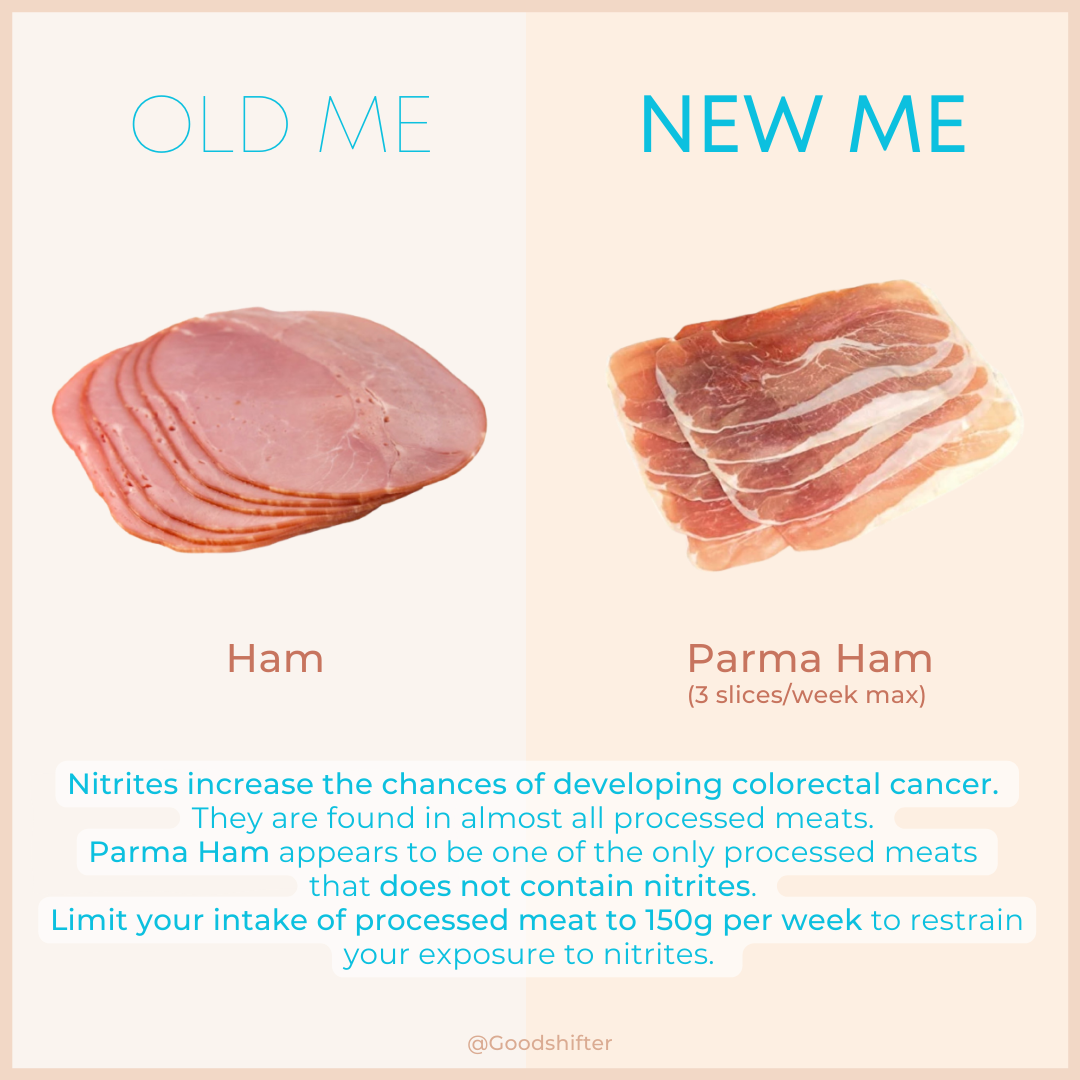
Nitrite in processed meat : how to avoid it? and why?
June 28, 2023Nitrite is making headlines: this additive, found in almost all processed meats, is said to increase the risk of cancer. In 2015, a major report from the World Health Organization linked 34,000 worldwide cases of colorectal cancer a year to diets high in processed meats.
What are nitrites? Why should they be avoided ?
Nitrites are widely used as food additives, primarily in processed meats like bacon, ham, sausages, and deli meats. They serve several purposes in food preservation:
- Preservation: Nitrites help inhibit the growth of bacteria, particularly Clostridium botulinum, which can cause botulism, a potentially fatal illness. They help extend the shelf life of processed meats by preventing spoilage.
- Colour Retention: Nitrites help preserve the pink or reddish colour of cured meats. Without nitrites, these meats would turn greyish or brownish during processing and storage.
- Flavour Enhancement: Nitrites contribute to the characteristic flavour and aroma of cured and processed meats.
Nitrites are potentially harmful to health due to their ability to form compounds called nitrosamines. When nitrites react with certain proteins in food, especially during high-temperature cooking, they can form nitrosamines. These nitrosamines are chemical compounds that have been identified as carcinogenic (cancer-causing). Indeed, scientific studies have established a link between high nitrite consumption and an increased risk of certain cancers, particularly colorectal cancer and stomach cancer.
To reduce exposure to nitrites, several measures can be taken:
1. Read food labels: Check the ingredient list on food labels and avoid products that contain nitrites or nitrite additives such as sodium nitrite, potassium nitrite, or sodium nitrite reduced. Be vigilant while purchasing processed and packaged foods, as they are more likely to contain nitrites, for example processed meat or vegetables stocks.
2. Limit your intake of processed meat to 150g per week per person (3 slices of ham) to retrain your exposure to nitrite. This is a recommendation of ANSES, the French scientific assessment agency for food and nutrition.
3. Prefer nitrite-free products: Some processed meat products like Parma Ham and San Daniele don’t need nitrite for their preservation so they are said to be naturally nitrite free. Otherwise, you can look for food products that are labelled as nitrite-free if the additives used for the preservation are not derived from vegetable extracts. These preservatives still produce nitrosamines when cooked and ingested and can increase the risk of cancer.
4. Consume fresh foods: By focusing on fresh ingredients, you can avoid the nitrites present in many processed foods.
5. Cook at lower temperatures: High-temperature cooking methods, like grilling, frying, or broiling, can promote the formation of nitrosamines from nitrites. Opt for gentler cooking methods such as baking, steaming, or sautéing at lower temperatures to minimise nitrosamine formation.
6. Increase antioxidant intake: Consuming foods rich in antioxidants can help mitigate the potential harmful effects of nitrites. Antioxidants, found in fruits, vegetables, herbs, and spices, can neutralise free radicals and reduce the formation of nitrosamines. Include a variety of colourful fruits and vegetables in your diet to boost your antioxidant intake.
# processed meat # nitrite # cancer # ham # bacon # colorectal cancer